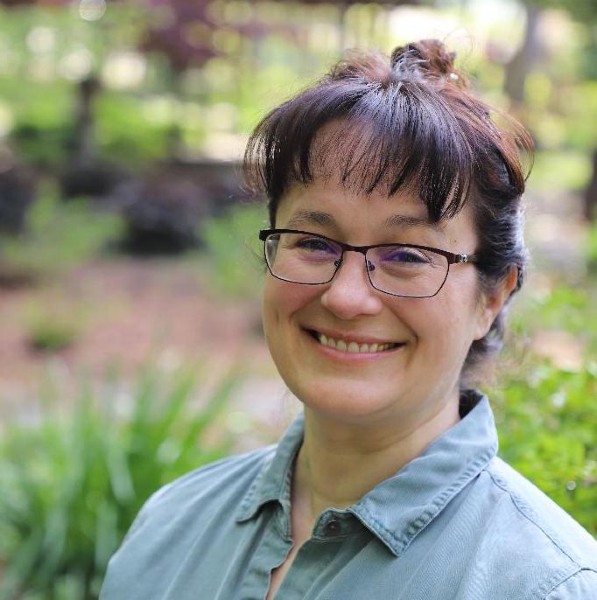Heather Kapanka, SIS Student

Today’s media centers need to have a balance between a strong collection of books to support a love of reading while also providing opportunities to learn about digital citizenship and information literacy.
Like many in the profession, SIS student Heather Kapanka’s path to librarianship can be traced back to a childhood love of reading. After working as a high school science teacher and as an educational consultant for Macmillan/McGraw-Hill Publishers, Kapanka switched gears and became a stay-at-home mom to her two young sons. While volunteering at the elementary school’s media center, it became clear to Kapanka that this was her future career path.
Kapanka is pursuing a master of library and information science degree with a school library media specialist endorsement. She chose to attend Wayne State's School of Information Sciences because of the school’s exemplary reputation as a leader in the field and the flexibility of the online program. She said that it was especially helpful to have had experience with online classes when her sons, now teenagers, had to adjust to attending school remotely in the early days of the pandemic. Kapanka hopes to work as a media specialist for an elementary school when she completes the program.
“Today’s media centers need to have a balance between a strong collection of books to support a love of reading while also providing opportunities to learn about digital citizenship and information literacy,” Kapanka said. “The way we learn to access information really starts in elementary school. Today’s adults were taught to research in encyclopedias. Media center specialists are essential in helping transition kids to life in the digital age.”
Kapanka explores how school library media specialists had to quickly change and adapt their ways of teaching due to the COVID-19 pandemic in the article, “School Library Media Specialists: An Evolving Profession in a Pandemic,” which was published in the International Federation of Library Associations and Institutions (IFLA) Journal.
“The online/digital teaching tools aren’t going to go away after COVID,” she said. “In many school districts each child now has a tablet or laptop. It’s going to become key that teachers learn all of those programs and media specialists can play an important role in providing ongoing support and development as we continue with life post-COVID.”
Kapanka’s article is available on Wayne State’s Digital Commons.